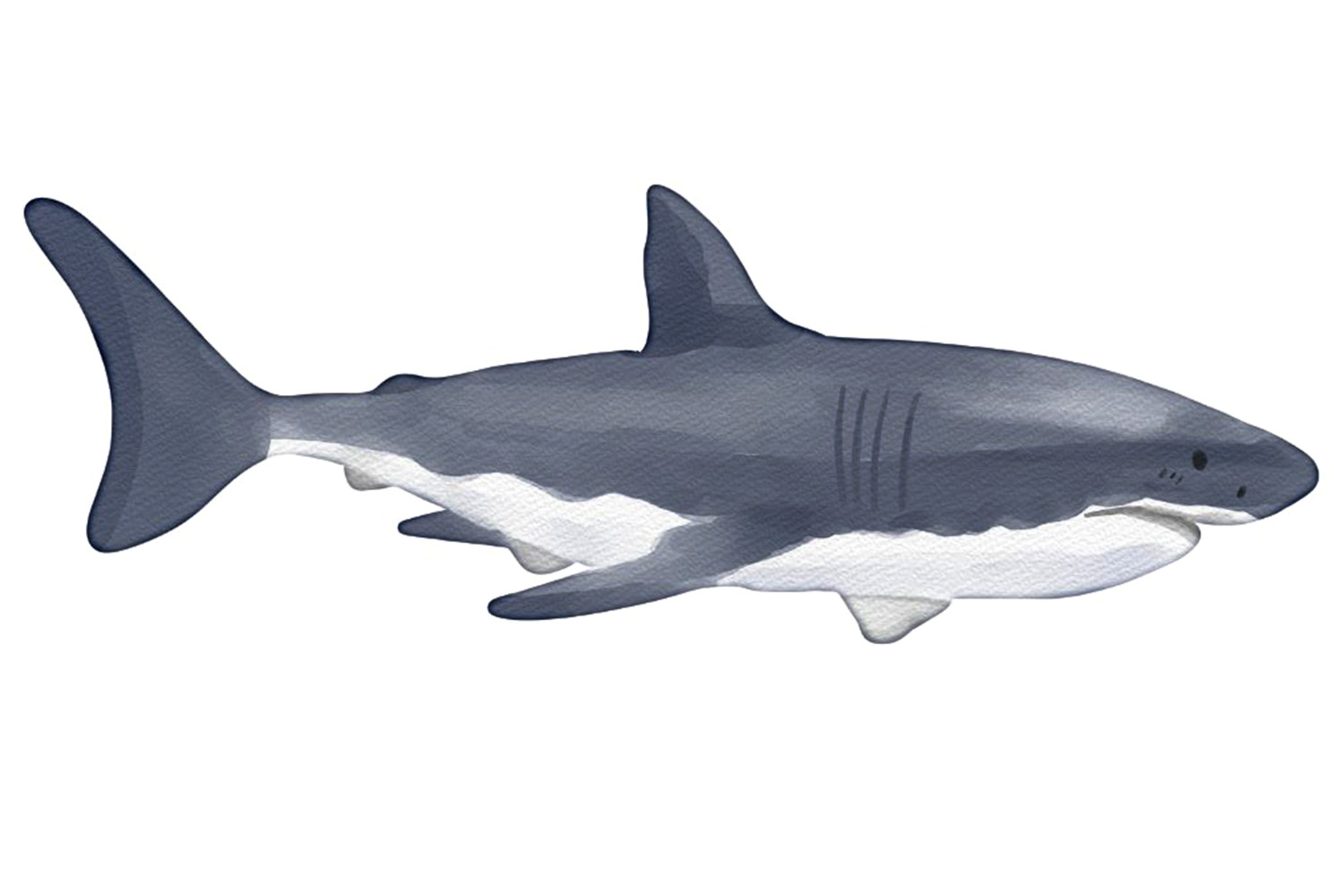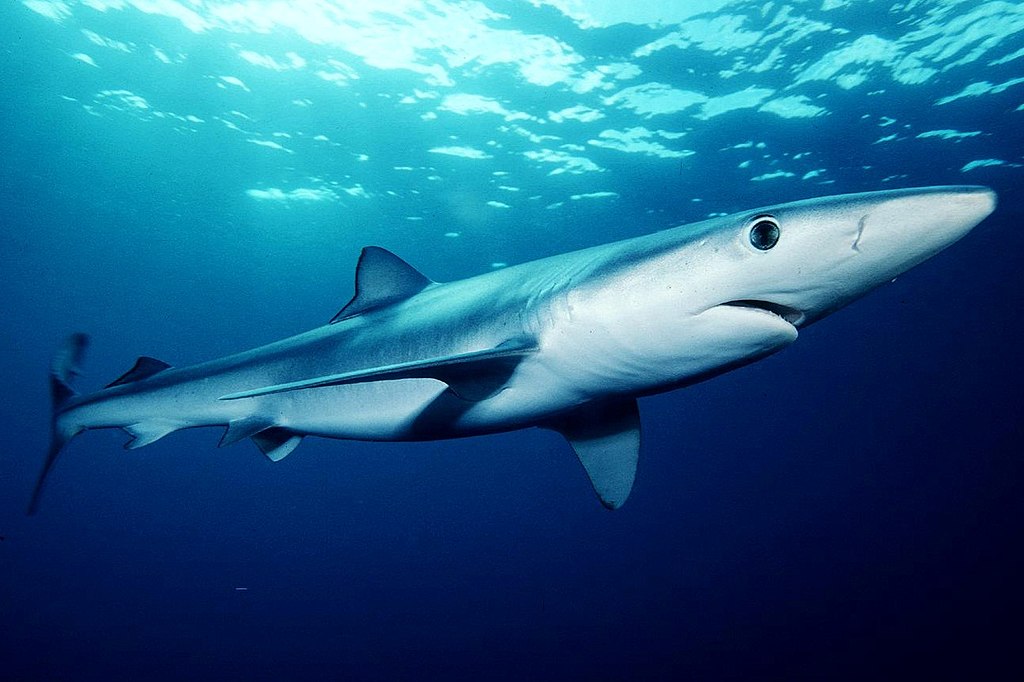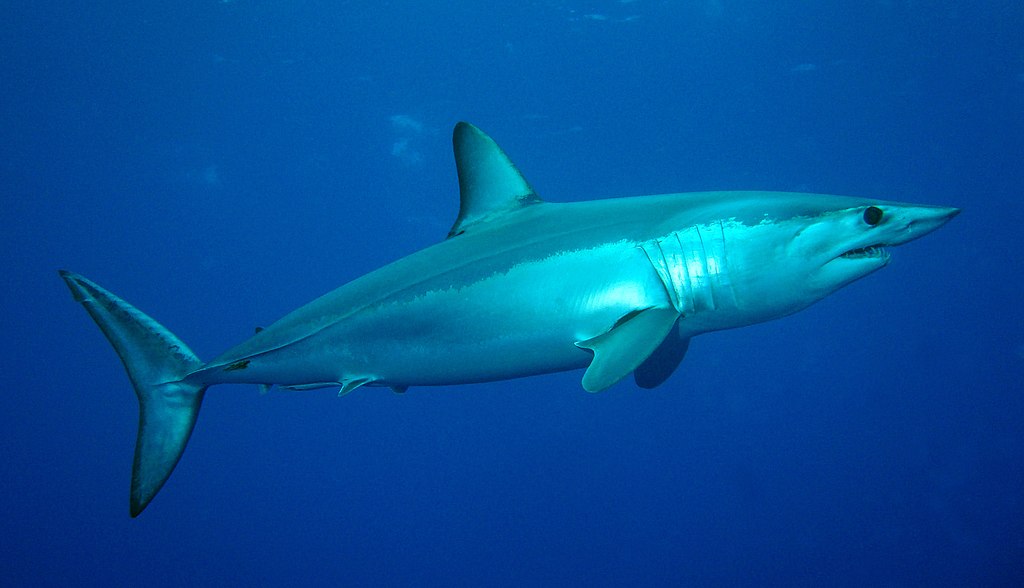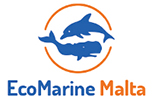
Sharks in the Mediterranean: a treasure we need to preserve
The Mediterranean Sea, known for its shades of blue waters and scenic coastlines, harbors a diverse array of marine life, including some of the most fascinating and feared creatures of the deep: sharks. Despite the misconception that sharks primarily inhabit tropical waters, the Mediterranean Sea hosts around 38 species of sharks, each playing a crucial role in maintaining the delicate balance of its marine ecosystems.
One of the most iconic shark species found in the Mediterranean Sea is the blue shark (Prionace glauca). Recognizable by its slender body and distinctive blue coloration, this species roams the open waters, often venturing close to the surface in search of prey, and to give birth. Blue sharks are highly migratory, traversing vast distances in pursuit of food and suitable breeding grounds.

Despite their imposing appearance, they are generally not dangerous to humans and are more commonly encountered by fishers than beach-goers.
The blue shark is one of the most overfished sharks. In the Mediterranean Sea, it is estimated that this species declined by 96.5–99.8% in abundance and biomass since the beginning of the 19th century. Blue shark meat can be found fresh or frozen in several fish markets and supermarkets in Europe, including Malta. In Maltese, the common name for the blue shark is “Ħuta kaħla”.
Another notable inhabitant of the Mediterranean Sea is the shortfin mako shark (Isurus oxyrinchus). Renowned for its incredible speed and agility, the shortfin mako is one of the fastest sharks in the ocean, capable of reaching speeds up to 60 miles per hour. With its sleek body and powerful jaws, this apex predator preys on a variety of fish species, helping to regulate marine populations and maintain ecosystemic stability. Unfortunately, Mako sharks are object of fish fraud, and can be sold as swordfish. Be careful, and try not to get scammed!

In addition to these larger species, the Mediterranean Sea is also home to a diverse array of smaller sharks, each contributing to the region’s rich biodiversity. Some of them are: the small-spotted catshark (Scyliorhinus canicula), the nursehound shark (Scyliorhinus stellaris), and the longnose spurdog (Squalus blainville). These smaller species are also fished and consumed locally. In Malta, when visiting the fish market, it is easy to see these sharks labelled as “Mazzola”.
Despite their ecological importance, sharks in the Mediterranean Sea face numerous challenges, including overfishing, habitat destruction, and pollution. Over the years, commercial fishing practices, particularly those targeting high-value species such as tuna and swordfish, have inadvertently caught many sharks as bycatch, contributing to population declines. Additionally, coastal development and pollution have led to the degradation of essential shark habitats, further exacerbating their condition.
In conclusion, sharks are an integral part of the Mediterranean Sea’s marine ecosystems, contributing to its biodiversity and ecological balance. While they face numerous challenges, concerted conservation efforts and public awareness initiatives can help ensure a brighter future for these enigmatic creatures and the oceans they inhabit. Protecting sharks in the Mediterranean Sea is not just about safeguarding a single species but preserving the health and vitality of an entire ecosystem for generations to come.
Article by Laura Piredda AKA AdriShark
for EcoMarine Malta

